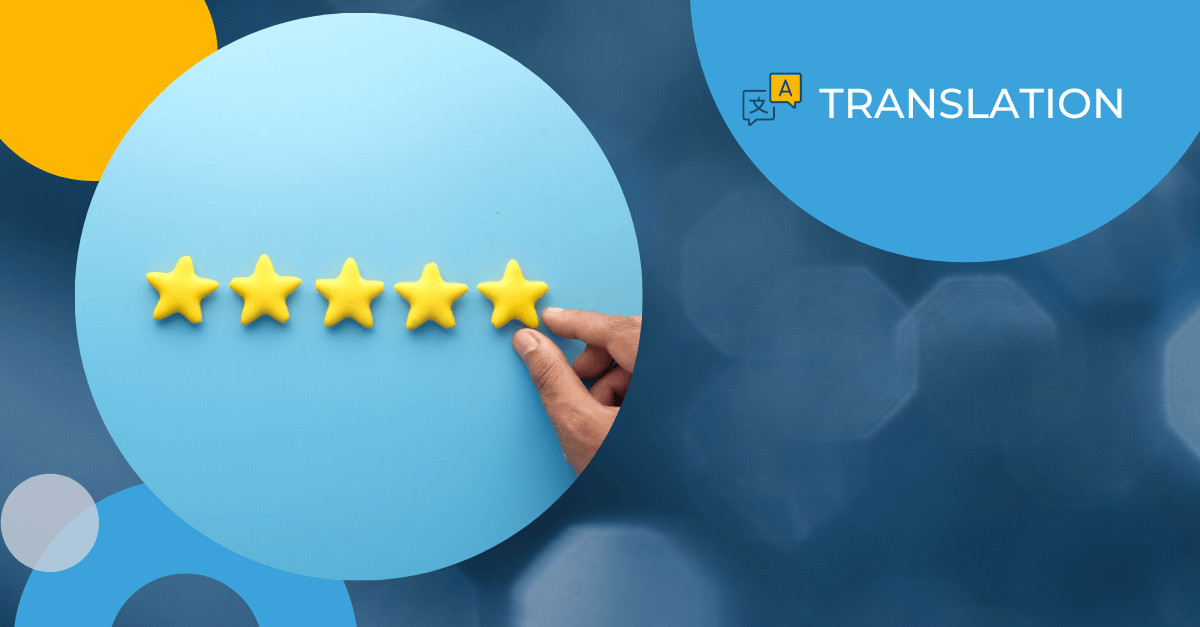When beginning the process of partnering with a professional language services provider (LSP), you will hear a lot about the quality of translations provided – at least, you should. This leads to the question of what are translation quality standards.
According to the International Organization for Standardization (ISO), quality can be defined as “the totality of features and characteristics of a product or service that bears its ability to satisfy stated or implied needs.” In the case of translation, quality can be defined as the success of the translation in accurately capturing and conveying the information and intent of the source document.
Translation quality becomes mission-critical in domains such as medical, legal, accounting, technical documentation, and intellectual property (IP). Poor-quality translations could cause a loss of business value and, in some cases, even a loss of life.
What is an ISO Standard?
ISO standards set out various business processes and best practices internationally agreed upon by experts. ISO standards for translation quality focus on establishing and maintaining a process of translation, review and approval that, when followed diligently by qualified professionals, will consistently result in reliable, accurate translations and meet the requirements of the customer’s use case.
Two Examples of ISO Quality Standards
ISO 9001:2015 is the world’s most widely recognized quality management standard. ISO 9001 outlines ways to achieve consistent performance and service at all levels. Achieving this certification means a company has created a quality system with a framework for better customer satisfaction, staff motivation and continuous improvement.
ISO 17100:2015 is an international quality standard set precisely for the translation industry. It defines the requirements for the core processes, resources and other aspects necessary for delivering a quality translation service. Certification to ISO 17100 showcases a translation company’s high level of commitment to meeting client and industry requirements.
Industry-Specific Translation Quality Standards: A Medical Example
Some industries have specific translation quality needs that more generalized quality standards cannot meet. A good example is ISO 13485:2016, which specifies requirements for a quality management system. This standard requires an organization to demonstrate its ability to provide medical devices and related services, such as translation, that consistently meet customer and applicable regulatory requirements to remain compliant.
ISO 13485 can also be used by suppliers or external parties that provide products or services to such organizations. LSPs, like Morningside, certified to ISO 13485, collaborate with medical device companies to determine risk management for all medical device translations. With the LSP implementing processes that reduce the potential for product risks, the medical device company reduces its exposure to compliance and legal issues, not to mention the risk to customers.
International Standard for Security Management
ISO 27001:2013 is an extensive framework of requirements for “establishing, implementing, maintaining and continually improving an information security management system.” It ensures that business information is handled confidentially and securely and that appropriate care is taken to mitigate risks compromising client data integrity.
Morningside is the world’s first significant patent translation and filing company to obtain this certification. We are one of only a handful of LSPs to have achieved it. Achieving this prestigious certification is no small feat and demonstrates a complete commitment to client data, systems, and processes.
It’s all about the people and the process
Translation quality standards play an essential role, but they are no substitute for providing ongoing training and feedback to translators, as well as arming translators and editors with the necessary resources and information on the subject matter, the context in which the translation will be used, etc. Translation teams equipped with glossaries, style guides, support materials, and contextual information can produce a much higher quality translation than those just handed a text with no background.
About Morningside, A Questel Company
Morningside, a Questel Company equips the world’s leading organizations with accurate, high-quality, professional translation services. We specialize in highly regulated industries, including legal, life sciences, corporate compliance and IP. We help your ideas reach new markets and audiences while allowing you to do more with your budget. Our global network of 8,000+ vetted translators includes subject matter experts (SMEs) in various technical fields and practice areas. Morningside is supported by industry-leading technology and a quality management system certified to the latest ISO 9001, 13485 and 17100 standards. We translate complex materials into 200+ languages for Global 500 companies, international law firms, and regulatory bodies.



